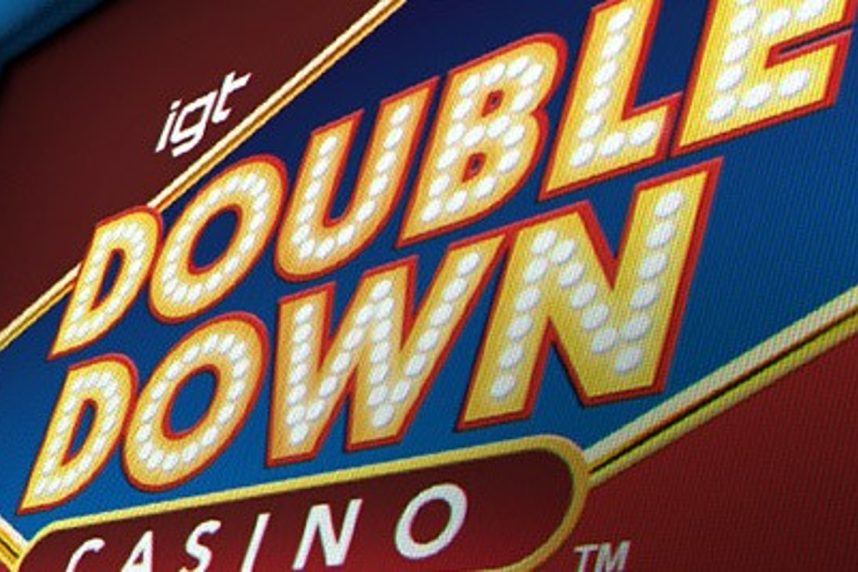DoubleDown, IGT $415M Social Casino Settlement Approved
Posted on: June 5, 2023, 09:49h.
Last updated on: June 5, 2023, 11:03h.
In August 2022, DoubleDown Interactive (DDI) and International Game Technology (IGT) agreed to a $415 million settlement. The payment aimed to resolve a class action lawsuit brought against the social gaming developers. The settlement agreement received final approval last week in a Washington federal district court.

Attorneys representing plaintiffs Adrienne Benson and Mary Simonson in the litigation Benson et al v. DoubleDown Interactive, LLC, et al, argued that the DoubleDown Casino, a social gaming app and website, violated Washington’s state gambling laws. The lawsuit claimed that players like Benson and Simonson were wrongly lured into purchasing and losing online gaming chips by wagering at the DoubleDown Casino.
The DoubleDown Casino is a social gaming platform that doesn’t offer real money gambling. However, players can purchase interactive gaming chips and tokens. The financial exchange, the plaintiffs’ attorneys contended, violated Washington’s prohibition on commercial casinos.
“The Court hereby grants final approval to the Settlement and finds that the Settlement is, in all respects, fair, reasonable, and adequate, and in the best interests of the Settlement Class. The Court finds that the Settlement is within the authority of the Parties and the result of extensive, arm’s-length negotiations. The Parties are directed to proceed with the Settlement procedures specified under the terms of the Settlement Agreement, including payment and prospective relief,” wrote US District Judge Robert Lasnik in Washington’s Western District.
No Admission of Guilt
IGT is a UK-based manufacturer of casino slot machines, lottery products, and interactive games.
IGT acquired DoubleDown Interactive, a Seattle-based social casino firm, in early 2012 for $500 million. The company rose to prominence on Facebook, where players played slots for fun and not real money. IGT sold DDI in June 2017 to a South Korean firm called DoubleU Games for $825 million.
Benson v. DoubleDown was filed in June 2018 and argued that DoubleDown Casino, and its current and former owner, should be held financially culpable for operating unlawful games of chance in Washington state.
Consumers visiting DoubleDown Casino for the first time are awarded one million free chips. These free sample chips offer a taste of gambling and are designed to encourage players to get hooked and buy more chips for real money,” the lawsuit reasoned.
The DoubleDown Casino offers players who lose their chips the opportunity to purchase additional gameplay tokens. For example, the plaintiffs’ attorneys said players can buy 300K chips for $2.99.
“By operating the DoubleDown Casino, Defendants have violated Washington law and illegally profited from tens of thousands of consumers,” the lawsuit continued.
While DDI and IGT agreed to the $415 million class action settlement, the deal doesn’t include any admission of wrongdoing. All settlement class members who haven’t properly sought exclusion from the settlement also agree to be “permanently barred and enjoined from filing, commencing, prosecuting, intervening in, or participating (as class members or otherwise) in any lawsuit or other action” related to the settlement.
IGT Paying Bulk
The DoubleDown Casino settlement will see IGT pay the bulk of the funds. The agreement stipulates that IGT contributes $269.75 million, and DDI covers the remaining $145.25 million.
Lasnik agreed to heavily compensate the plaintiffs’ attorneys for bringing the lawsuit. Because the litigation was “risky, novel, and hard-fought,” the federal judge said nearly $121.5 million of the settlement fund should go to the plaintiff’s attorneys.
That leaves more than $292.5 million for the thousands of class action members.
Related News Articles
Amazon Named in Social Casino App Lawsuit, Plaintiff Says He Became ‘Addicted’
Light & Wonder Stock Has Big Upside Potential, Says Analyst
Most Popular
Mirage Las Vegas Demolition to Start Next Week, Atrium a Goner
Where All the Mirage Relics Will Go
Most Commented
-
Bally’s Facing Five Months of Daily Demolition for Chicago Casino
— June 18, 2024 — 12 Comments
















Last Comments ( 31 )
I just checked the site there were challenges and they're under review we will not receive distribution for at least 120 days from June 1st they say its good to have something to look forward too but this is annoying
Will someone please post when they get a settlement. Just curious to know when they are starting to send them. Thanks
292 million will be paid out to everyone who filed a claim and received a letter with your total spend. I’ve read there’s approximately 90000 class action members. On the double down settlement website it provides an estimate calculator. It’s not the guaranteed amount but will show you a rough estimate. Example: if you spent 20k the payout is approximately 5-15k. I’ve seen 90 days and 120 days from June 1st.
I received my confirmation and was surprised. they said we have to dispute the amount we spent by August 14th so I'm guessing no money until after the 14th
Supposedly, you will be sent a notification of how much you spent over the years once your claim is verified. Payment will be paid out after that. If you did not fill out a claim form before April 11, 2023, you are out of luck.
I have contacted the Settlement Administrator several times and they have rudely replied that no payment will be made before October 1, 2023.
Ry2d276 i was mailed 1 that went to wrong address. I am calling courts and attoneys to find out what I need to do since I have been on double down since it started.. wondering why no proper court papers were ever summons to any of us. We deserve to have our amounts paid to these people looked at and know that we are without a voice. I pray we don't get left behind....
Any idea when we may get this settlement?
If you are a Washington state resident is how they were found guilty. Washington state don't allow this type of gambling. People were sent a paper to fill out. I did and have not heard nothing but I lost so much because I was joining my friends in tournaments. Yet never won ....
When will I here if I will be getting anything.I have spent lots of money
How do I find out how much I spent and how muich will be deposited in my checking account. and when will it be sent out. Thank you Janice Beck
When will I be notified of how much I spent over the years the lawsuit covers?
How do you check your payment amount if you have a claim number
You had to file a claim before it went to court
I've spent a lot of money buying chips here. Do I get money?